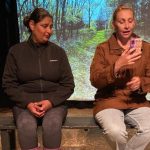By Sophie Turnbull, Senior Research Associate, Centre for Academic Primary Care, University of Bristol
I have an ongoing interest in how industry and academia can work together to produce really good evidence-led products that can be accessible for the target users, and have more longevity than those produced in purely academic settings.
From experience, when we produce digital interventions in our academic bubble, they are brilliantly researched, but often not maintained in the long-term, meaning they disappear soon after the research funding stops. Or we do not have enough budget to develop something that people are going to want to use.
While exploring how academia and industry can come together to reduce inequalities in access to good quality healthcare, I discovered ZINC. ZINC runs mission-led programmes with people from across disciplines to build commercial solutions to solve some of the most pressing societal issues. I … Read more









